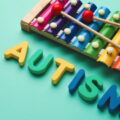

This article presents a few key pieces of advice from Community Care Inform Children’s guide on parental mental illness. The full guide looks at the impact of parental mental illness on children and families, advises on how to support families and addresses some of the specific challenges in this area of practice. It also explores the tension between the child safeguarding role and the types of support parents with mental illness most value. Community Care Inform Children subscribers can access the full guide here.
The guide was written by Scott Yates and Lina Gatsou, who have researched and developed training for multi-agency practitioners working with children and families affected by parental mental illness.
Stigma
‘Stigma’ can be understood as a form of social devaluation and rejection of an individual or group because they have an attribute that is seen as socially undesirable (Goffman, 1963). What is considered ‘undesirable’ varies across different societies, but mental illness is one of the most commonly stigmatised attributes.
People with mental illnesses are at risk of being stigmatised as dangerous, unpredictable, incompetent, lacking in responsibility, mentally and emotionally weak (Corrigan & Kosyluk, 2014), and as less capable of being a good parent.
Despite more public conversations about mental health, stigma is still a major problem, and can increase distress, discourage social interaction and help-seeking, and hinder recovery.
Types of stigma
It can be helpful to break down stigma in relation to parental mental health into public stigma, self-stigma, and courtesy stigma.
- Public stigma: the attitudes and beliefs held by other people that lead them to avoid, socially reject and discriminate against the stigmatised person. The consequences of this for a parent can include, for example: workplace discrimination or loss of jobs, friendships or wider family relationships.
- Self-stigma: the internalisation of negative attitudes and beliefs, so that the person comes to believe that the negative stereotypes of mental illness apply to them. This can lower a parent’s self-esteem and sense of self-efficacy (belief in their own ability to positively affect their circumstances). It can also lead to them internalising an idea of themselves as a poor parent and blaming themselves for negative outcomes in the family.
- Courtesy stigma: stigma experienced by people close to those with stigmatised characteristics – ‘stigma-by-association’. Family members can experience prejudice and discrimination through association with their mentally unwell relatives (Larson & Corrigan, 2008). Children of parents with a mental illness can often experience this, notably through bullying or being ostracised by peers.
Consequences of stigma
Without intending to, family members can direct stigmatising ideas and labels towards one another as they try to understand and negotiate the illness, family experiences, relationships and responsibilities (Yates & Gatsou, 2021).
For example, a child might change their behaviour towards their parent – ignoring their authority or being rude. The parent may then feel the child is being disrespectful and hurtful but the behaviour is likely due to societal attitudes, lack of understanding and confusion, rather than malice.
Professionals should also be aware that one of the most common strategies for managing the impacts of stigma is concealment. Parents may try to conceal the existence of their illness, both from other members of their family and from the outside world.
Children can be drawn into strategies to conceal the illness from others, which can add to their distress and confusion. Whole families can then become isolated from contact with peers, friends and potential sources of support. Parents and children may fear that if services learn of the illness, the family will be broken up.
Unwell parents are often highly sensitive to perceived criticisms of their parenting and may have had negative experiences of feeling they were judged or criticised by services in the past.
Practice point
Services can maximise the chances of positively engaging families with parental mental illness through a multi-faceted strategy to counter experiences of stigma.
This includes taking an overtly non-judgmental stance, giving families a sense of control over their engagement and participation, building rapport and working on destigmatisation and normalisation of mental illness.
The full guide to parental mental illness includes more information about key principles for supporting families, as well as how to address the complex needs and adversities experienced by parents with mental illness. If you have a Community Care Inform Children licence, log on to see the full guide and read more detailed information.
You might also be interested in:






 Bournemouth, Christchurch and Poole
Bournemouth, Christchurch and Poole  Hampshire County Council
Hampshire County Council  Lincolnshire County Council
Lincolnshire County Council  Norfolk County Council
Norfolk County Council  Northamptonshire Children’s Trust
Northamptonshire Children’s Trust  South Gloucestershire Council
South Gloucestershire Council  Wiltshire Council
Wiltshire Council  Wokingham Borough Council
Wokingham Borough Council  Children and young people with SEND are ‘valued and prioritised’ in Wiltshire, find inspectors
Children and young people with SEND are ‘valued and prioritised’ in Wiltshire, find inspectors  How specialist refugee teams benefit young people and social workers
How specialist refugee teams benefit young people and social workers  Podcast: returning to social work after becoming a first-time parent
Podcast: returning to social work after becoming a first-time parent  Podcast: would you work for an inadequate-rated service?
Podcast: would you work for an inadequate-rated service?  Family help: one local authority’s experience of the model
Family help: one local authority’s experience of the model  Workforce Insights – showcasing a selection of the sector’s top recruiters
Workforce Insights – showcasing a selection of the sector’s top recruiters 

 Facebook
Facebook X
X LinkedIn
LinkedIn Instagram
Instagram
—-Parental mental illness and the role of stigma: key practice points – Community Care
That you were taught there is a stigma is clear. When and by whom? Do you recall? I was not so taught, ergo I do not.
Stigma (sic) is a prejudice (prejudice is the apt and accurate term) directed by some against another some. None of us are required to be among those directing it. You and you alone decide whether you are going to take part in it. That there are people taught and teaching, trained to a stigma, does not equate with there is. (Have you any doubt of that assessment see WWII, Jew stigma.)
Harold A Maio, retired mental health editor